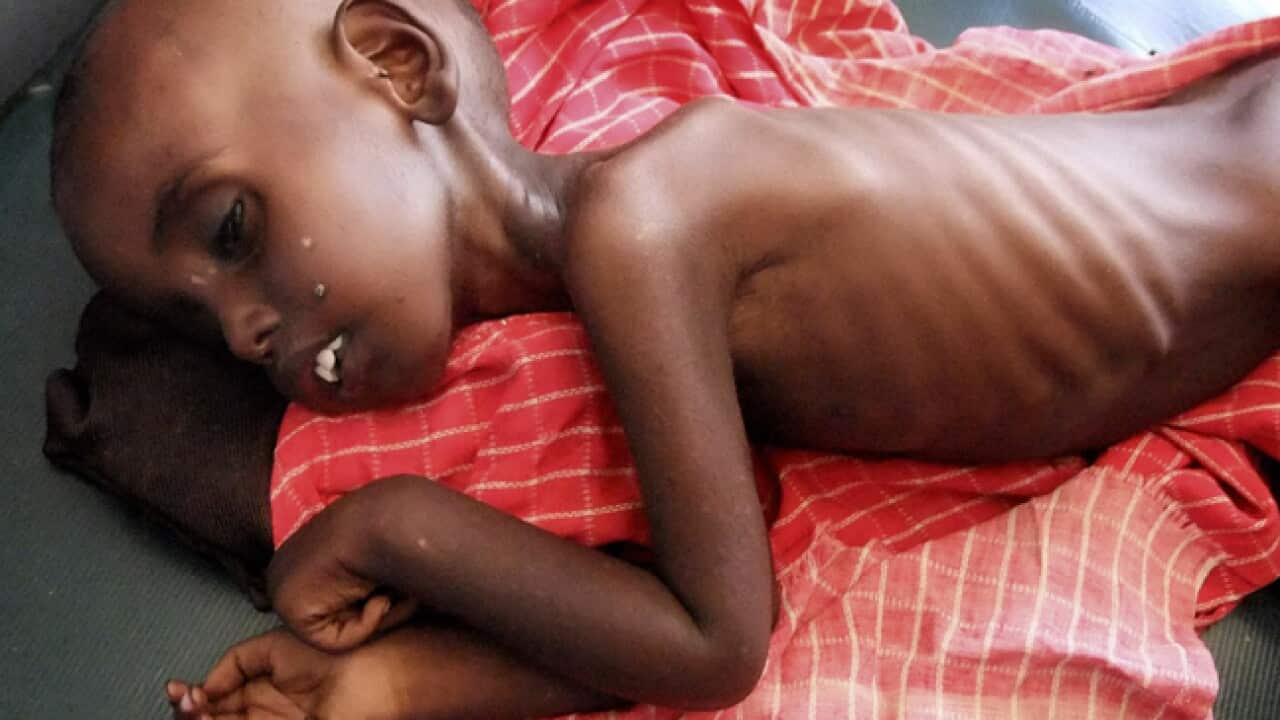Children are dying in Somalia's devastating famine at an alarming rate the UN has warned with aid agencies apparently struggling to cope.
Ten percent of Somali children aged under five are dying every 11 weeks UN officials have warned.
The envoy, Augustine Mahiga, said about half the Somali population, about 3.7 million people, are now at risk from famine. The UN estimates that more than 12 million are affected across East Africa.
The UN representative to Somalia also told the UN Security Council that warlords will take control of areas of Mogadishu abandoned by Islamist insurgents last weekend unless the transitional government quickly gets a grip.
Across the famine zone, more than 13 children out of every 10,000 aged under five die each day, Mahiga said. "This means that 10 percent of children under five are dying every 11 weeks. These figures are truly heart-wrenching," the envoy told the council, appealing for greater international assistance.
The UN has asked for $1 billion for Somalia, but Catherine Bragg, the deputy UN emergency relief coordinator, said less than half the sum has been raised.
"We have not yet seen the peak of the crisis as further deterioration is considered likely," she told the council.
Bragg said 1.2 million children need urgent assistance. "Tens of thousands of children have already died and many more will die in the coming days unless aid is provided to them."
The UN considers the famine the worst in Africa since about 500,000 people died from food shortages in Somalia in 1991-92.
More regions of southern and central Somalia are expected to be designated famine zones in coming days and weeks, UN officials and diplomats said.
The famine has become a critical new problem for Somalia's transitional government which is battling for control of the country with the Shebab Islamic insurgency.
Mahiga told the UN Security Council that a UN-backed African Union force desperately needs extra resources to help it establish government control in areas of Mogadishu that Shebab abandoned last weekend.
The transitional government must quickly stamp its authority, he said.
"Without the immediate action to fill this gap, a real danger exists that the warlords and their militia groups will move forward to fill the vacuum created by Shebab's departure," Mahiga said.
Diplomats said that while Shebab's withdrawal was good for the transitional government, they recalled how the insurgent's hardline predecessor, the Islamic Courts, withdrew from Mogadishu in 2006 but returned one month later.
Share

